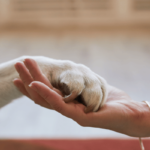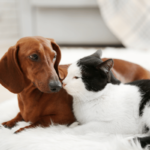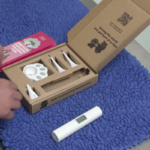Discover the latest in Innovative Pet Care Trends. This article explores new and exciting developments in the world of pet care, offering insights for pet owners.
Exploring New Advances in Pet Nutrition

Recently, there’s been a significant shift towards natural and organic pet foods. As a seasoned pet caretaker, I’ve observed a growing interest in wholesome diets. These trends emphasize nutritionally balanced, preservative-free ingredients. Significantly, they cater to specific health needs of pets, such as allergies or sensitivities. This approach mirrors a broader societal shift towards healthier eating, reflecting our deepening understanding of nutrition’s impact on overall health.
Another exciting development is the integration of technology in pet care. Innovative gadgets, like GPS collars and automated feeders, are becoming increasingly popular. These devices not only offer convenience but also enhance pets’ safety and well-being. For instance, GPS collars have revolutionized how we locate lost pets, providing peace of mind to pet owners. Similarly, automated feeders ensure consistent feeding schedules, crucial for pets with specific dietary needs.
Innovative Pet Care Trends also include advancements in pet health monitoring. Wearable tech, like health trackers, monitors pets’ physical activity and vital signs. This technology enables early detection of potential health issues, facilitating prompt veterinary intervention. As a result, pets enjoy a higher quality of life, and owners are better equipped to manage their pets’ health. This trend underscores the growing emphasis on preventive care in the pet industry.
Enhancing Pet Lives with Smart Technology
Smart technology is revolutionizing pet entertainment and engagement. Interactive toys and games that stimulate pets mentally and physically are gaining popularity. These products not only keep pets entertained but also promote mental sharpness and physical fitness. For example, puzzle feeders challenge pets to solve problems to access treats, combining nutrition with mental stimulation. This trend reflects an increasing awareness of the importance of mental health alongside physical well-being in pets.
Sustainability is another key trend in pet care. Eco-friendly products, from biodegradable waste bags to sustainably sourced pet foods, are in demand. This shift aligns with a broader environmental consciousness among consumers. As a pet care expert, I appreciate this move towards environmentally responsible choices. It not only benefits the planet but also ensures a safer, healthier environment for our pets, reflecting a holistic approach to pet care.
Customization in pet products and services is growing. Personalized pet care plans, tailored nutrition, and even bespoke pet furniture are becoming more common. This trend highlights the recognition of pets as unique individuals with specific needs and preferences. As a result, pet owners are seeking products and services that cater specifically to their pets’ unique characteristics, enhancing their quality of life and strengthening the bond between pets and their owners.
Innovative Pet Care Trends in Modern Times
The rise of mobile vet services is noteworthy. These services offer convenience, reducing stress for pets and owners alike. Mobile clinics provide vaccinations, wellness checks, and more, right at your doorstep. This trend is particularly beneficial for busy pet owners or those with mobility issues. It also helps pets who experience anxiety during vet visits, ensuring they receive necessary care in a comfortable environment.
Holistic pet care is gaining traction. This approach integrates traditional veterinary medicine with alternative therapies like acupuncture, chiropractic, and herbal remedies. As an experienced pet caretaker, I’ve seen remarkable benefits from these integrative practices. They often address underlying health issues, not just symptoms, promoting overall well-being. Holistic care is especially valuable for managing chronic conditions, offering a more natural and gentle approach to pet health.
Pet mental health is increasingly recognized as crucial. Stress, anxiety, and behavioral issues are being addressed more proactively. Products like pheromone diffusers, anxiety wraps, and therapeutic toys are becoming popular. Additionally, pet therapists and behaviorists are more sought after, providing specialized care. This shift towards acknowledging and treating mental health in pets is a significant step forward, ensuring a more comprehensive approach to their well-being.
Advancements in Pet Training and Behavior
Training methods have evolved, focusing on positive reinforcement. This technique rewards good behavior, rather than punishing the bad. It fosters a stronger bond between pets and owners, based on trust and mutual respect. As a long-time pet enthusiast, I’ve seen remarkable results with this approach. Pets trained with positive reinforcement tend to be more cooperative, happier, and better adjusted, making for a more harmonious home environment.
Technology is also impacting pet training. Apps and online platforms offer virtual training sessions, making expert advice more accessible. This is particularly useful for those unable to attend in-person classes. Additionally, interactive toys and games aid in cognitive development and training. These tools not only entertain pets but also stimulate their minds, teaching them new skills and behaviors in a fun and engaging way.
The importance of early socialization in pets is now more understood. Socializing puppies and kittens from a young age is crucial for their development. It helps them become well-adjusted adults, comfortable with various people, animals, and environments. As a seasoned pet caretaker, I advocate for early socialization programs, which can significantly reduce behavioral problems later in life, leading to happier, more sociable pets.
Exploring Eco-Friendly Options in Pet Care
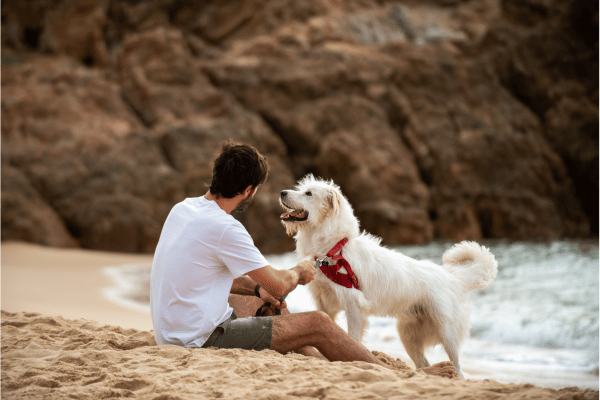
Eco-friendly pet care products are on the rise. From biodegradable litter to organic grooming products, the market is responding to a growing demand for sustainable options. These products not only benefit the environment but also tend to be gentler and safer for pets. As someone deeply invested in pet care, I find this trend encouraging. It shows a collective effort to reduce our environmental footprint while caring for our pets.
Sustainable pet food is another significant trend. Brands are focusing on environmentally responsible sourcing and production methods. This includes using locally sourced ingredients, reducing carbon footprints, and minimizing waste. As a pet care expert, I appreciate these efforts towards sustainability. They not only promote better health for our pets but also contribute to a healthier planet, aligning our love for pets with our responsibility towards the environment.
Recycling initiatives in pet care are gaining momentum. Companies are introducing recyclable packaging and encouraging consumers to recycle pet product containers. Some are even offering incentives for participating in recycling programs. This trend is a step towards more responsible consumption and waste management in pet care, reflecting a growing awareness of our environmental impact and a commitment to making more sustainable choices for the well-being of our pets and the planet.
Innovative Pet Care Trends in Grooming
Grooming has gone beyond basic care, embracing wellness. Pet spas offering massages, aromatherapy, and even mud baths are emerging. These services not only pamper pets but also promote their physical and mental well-being. As an expert in pet care, I see this as a positive development. It elevates grooming from a routine chore to a holistic experience, contributing to the overall health and happiness of pets.
At-home grooming products are becoming more sophisticated. High-quality shampoos, conditioners, and grooming tools are now readily available for pet owners. This allows for regular, professional-level care at home, ensuring pets are well-groomed without the stress of frequent salon visits. As someone with extensive experience in pet care, I value these advancements. They empower owners to maintain their pets’ grooming needs comfortably and effectively.
The trend towards natural grooming products is notable. Pet owners are increasingly seeking out shampoos, conditioners, and other grooming items made from natural, non-toxic ingredients. This shift is driven by a growing awareness of the potential harm caused by harsh chemicals. As a pet care veteran, I advocate for these natural alternatives. They are safer for pets and the environment, aligning with a holistic approach to pet care.
Pet Wellness: Beyond Physical Health
Pet wellness now encompasses emotional and mental health. Activities like pet yoga and meditation classes are becoming popular. These practices help reduce stress and anxiety in pets, promoting a sense of calm and balance. As a pet care expert, I find these approaches valuable. They address the often-overlooked aspect of mental health in pets, ensuring a more comprehensive approach to their overall well-being.
The concept of pet-friendly spaces is expanding. More public places, like parks, cafes, and even workplaces, are becoming welcoming to pets. This inclusivity allows pets to accompany their owners in more aspects of daily life, enhancing social interactions and reducing separation anxiety. As someone passionate about pet care, I see this as a positive trend. It fosters a more pet-inclusive society, benefiting both pets and their owners.
There’s a growing focus on preventive health care for pets. Regular check-ups, vaccinations, and early detection tests are being emphasized more than ever. This proactive approach helps in identifying and addressing health issues before they become serious. As a pet care professional, I strongly support this trend. Preventive care is key to maintaining long-term health and well-being in pets, ensuring they lead happy, healthy lives.
Innovative Pet Care Trends Shaping the Future
The integration of AI in pet care is groundbreaking. AI-powered toys and monitoring systems are providing interactive and adaptive experiences for pets. These technologies can learn from pets’ behaviors, offering customized play and care. As an expert in pet care, I’m excited about these advancements. They represent a new frontier in pet engagement and well-being, offering personalized care that adapts to each pet’s unique needs and preferences.
Telemedicine is becoming a vital tool in pet care. Virtual consultations with veterinarians offer convenience and immediate access to professional advice. This is especially useful for minor concerns or ongoing management of chronic conditions. As a pet care veteran, I value this development. It enhances access to veterinary care, making it easier for pet owners to seek advice and support, ensuring timely and effective care for their pets.
Nutrigenomics, the study of nutrition’s impact on pets’ genes, is an emerging field. This science is exploring how different foods can affect pets’ health at a genetic level. As a pet care professional with decades of experience, I find this research fascinating. It holds the potential to revolutionize pet nutrition, offering diets that are precisely tailored to individual genetic profiles, optimizing health and preventing disease.
Revolutionizing Pet Care with Cutting-Edge Technology
Wearable tech for pets is advancing rapidly. Devices that track activity, sleep patterns, and even vital signs are becoming more common. These gadgets provide valuable insights into pets’ health and behavior, enabling more informed care decisions. As a pet care expert, I see great potential in these technologies. They offer a deeper understanding of pets’ needs, leading to more personalized and effective care strategies.
3D printing is making waves in pet care. Customized prosthetics and orthopedic solutions are now possible, offering new hope for injured or disabled pets. This technology allows for precise, tailored solutions that significantly improve pets’ mobility and quality of life. As someone deeply involved in pet care, I’m inspired by these innovations. They demonstrate how technology can profoundly impact pets’ lives, offering solutions that were once unimaginable.
The rise of pet-centric home automation is notable. Automated feeding systems, smart doors, and even temperature-controlled beds are enhancing pets’ home environments. These innovations provide convenience for owners and comfort for pets. As a pet care professional, I appreciate the thoughtfulness behind these products. They reflect a growing desire to integrate pets seamlessly into our homes and lives, ensuring their needs are met even when we’re not around.
Fostering Strong Bonds Through Modern Pet Care
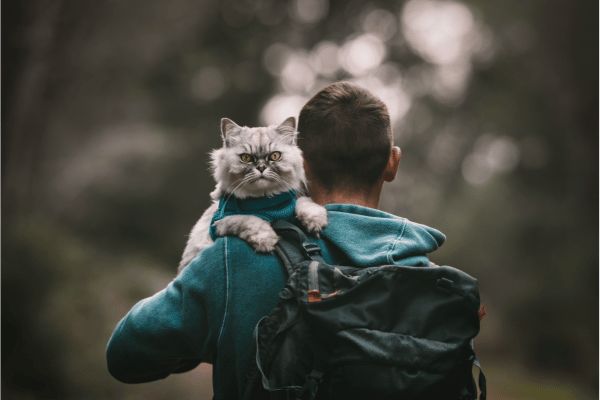
The trend of pet-friendly travel is expanding. More hotels and airlines are accommodating pets, making it easier for owners to travel with their furry companions. This inclusivity enhances the bond between pets and owners, allowing for shared experiences and adventures. As a pet care enthusiast, I celebrate this trend. It acknowledges the importance of pets in our lives, making them a more integral part of our journeys and experiences.
Community-building activities for pets and owners are growing. Events like pet meetups, training classes, and animal-themed festivals are fostering a sense of community among pet lovers. These gatherings provide socialization opportunities for pets and a platform for owners to share experiences and advice. As a pet care expert, I see the value in these communal activities. They strengthen the pet-owner community, offering support, education, and enjoyment.
The emphasis on pet education for owners is increasing. Workshops, online resources, and educational programs are becoming more accessible, empowering owners with knowledge about pet care. This trend is crucial for responsible pet ownership. It equips owners with the tools and understanding necessary to provide the best care for their pets. As a seasoned pet caretaker, I advocate for ongoing education, as it’s key to enhancing the lives of pets and their owners.
Conclusion: The Future of Pet Care: Embracing Innovation and Community
In conclusion, “Innovative Pet Care Trends” are transforming how we care for our pets. These advancements, from AI technology to community-building activities, are enhancing the lives of pets and their owners. As a pet care expert, I’m excited about these developments and their potential to improve pet well-being.
I encourage pet owners to explore these trends and integrate them into their care routines. Whether it’s adopting new technologies or participating in community events, each step enriches our pets’ lives.
Let’s embrace these changes and continue to grow as a pet-loving community. Share your experiences with these trends in the comments, and let’s learn from each other. Together, we can ensure a bright future for our beloved pets, filled with health, happiness, and innovation. For more insights, visit American Pet Products Association, which offers extensive resources on pet industry trends.
II. Dog and Cat Care FAQs
- Do dogs and cats care if we are naked?Dogs and cats generally do not have the same social norms and perceptions about clothing as humans do. They respond more to the scent, behavior, and body language of their owners rather than their state of dress or undress.
- Do cats and dogs worry about their babies?Cats and dogs exhibit parental instincts and can show concern for the well-being of their offspring. This includes providing food, protection, and teaching survival skills, although the intensity and duration of these behaviors can vary widely among individuals and breeds.
- Do dogs and cats understand that they are moving in cars?Dogs and cats can perceive motion and changes in their environment, so they do understand on some level that they are moving when in cars. Their reactions to car rides can vary, with some enjoying the experience and others feeling anxious or sick.
- How do dogs and cats view car rides?Dogs and cats can have varied perceptions of car rides. Some dogs may find car rides exciting and associate them with positive experiences like going to the park. Cats might be more prone to stress in moving vehicles, often preferring stable and familiar environments.
- How is caring for dogs and cats different?Caring for dogs often involves more active engagement, including regular walks, socialization, and training. Cats typically require less direct interaction but need environmental enrichment, such as climbing structures and scratching posts. Dogs may thrive on routine and structure, while cats often prefer a more independent lifestyle.
- What is the difference in caring for a dog and a cat?The main difference lies in their needs for social interaction and exercise. Dogs generally require more time and effort in training, exercise, and social activities, while cats are more independent, needing less direct interaction but appropriate environmental enrichment.
- Is there a specific veterinarian for dogs and another for cats?While many veterinarians treat both dogs and cats, there are specialists known as feline veterinarians who focus exclusively on cat care. These specialists have in-depth knowledge of feline medicine and behavior.
- Can cats take care of themselves?Cats are known for their independence but still require human care for food, health, and safety. While they can perform basic grooming and hunting behaviors, domestic cats rely on their owners for their well-being.
- How long does it take for the mother of the puppy and cat to forget that they are her children?The maternal bond in dogs and cats can diminish over time, especially after weaning, which typically occurs around 6 to 8 weeks of age. However, the exact time it takes for a mother to "forget" her offspring can vary and is not well-documented.
- At how many months do dogs and cats stop breastfeeding their puppies?Dogs and cats usually wean their offspring around 6 to 8 weeks of age. This process can vary depending on the individual animal and circumstances.
- What is the care of a puppy and the difference between that of a cat?Puppies require consistent training, socialization, and more frequent feeding schedules. Cats, particularly kittens, need less socialization but require safe environments to explore and engage in natural behaviors like climbing and scratching.

Join Marjorie Pearson at dwfocus.com, your guide in the pet parenting world. As an experienced animal behaviorist, Marjorie offers heartfelt advice for pet owners. Her expertise spans from nurturing kittens to understanding dogs’ playful antics. She’s passionate about enhancing the bond between pets and their humans through understanding and empathy. Discover Marjorie’s practical training tips and insights on dwfocus.com, enriching your journey as a pet owner. #4PawsAndOwners #MarjorieEarsonPetWhisperer #dwfocus





